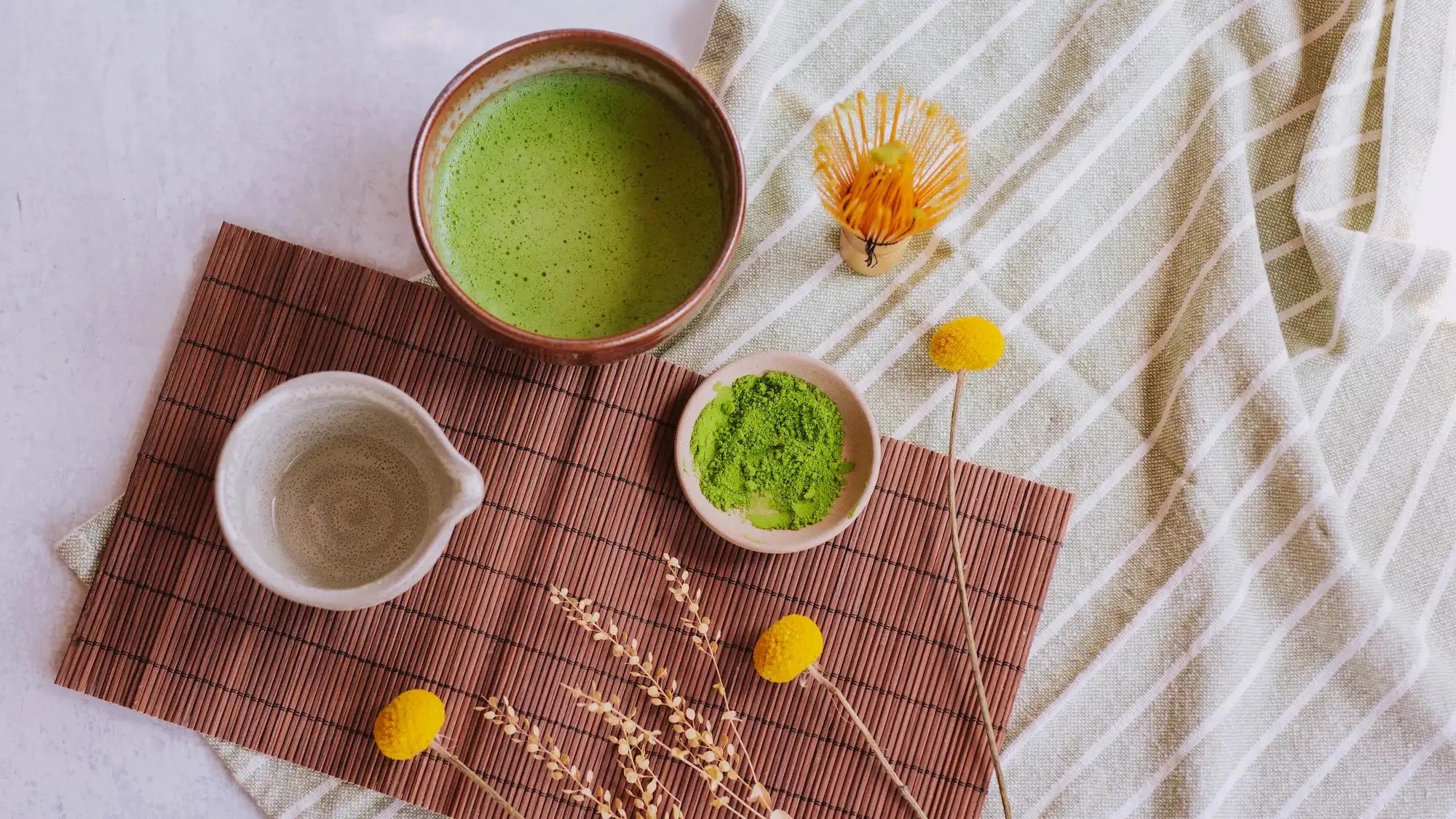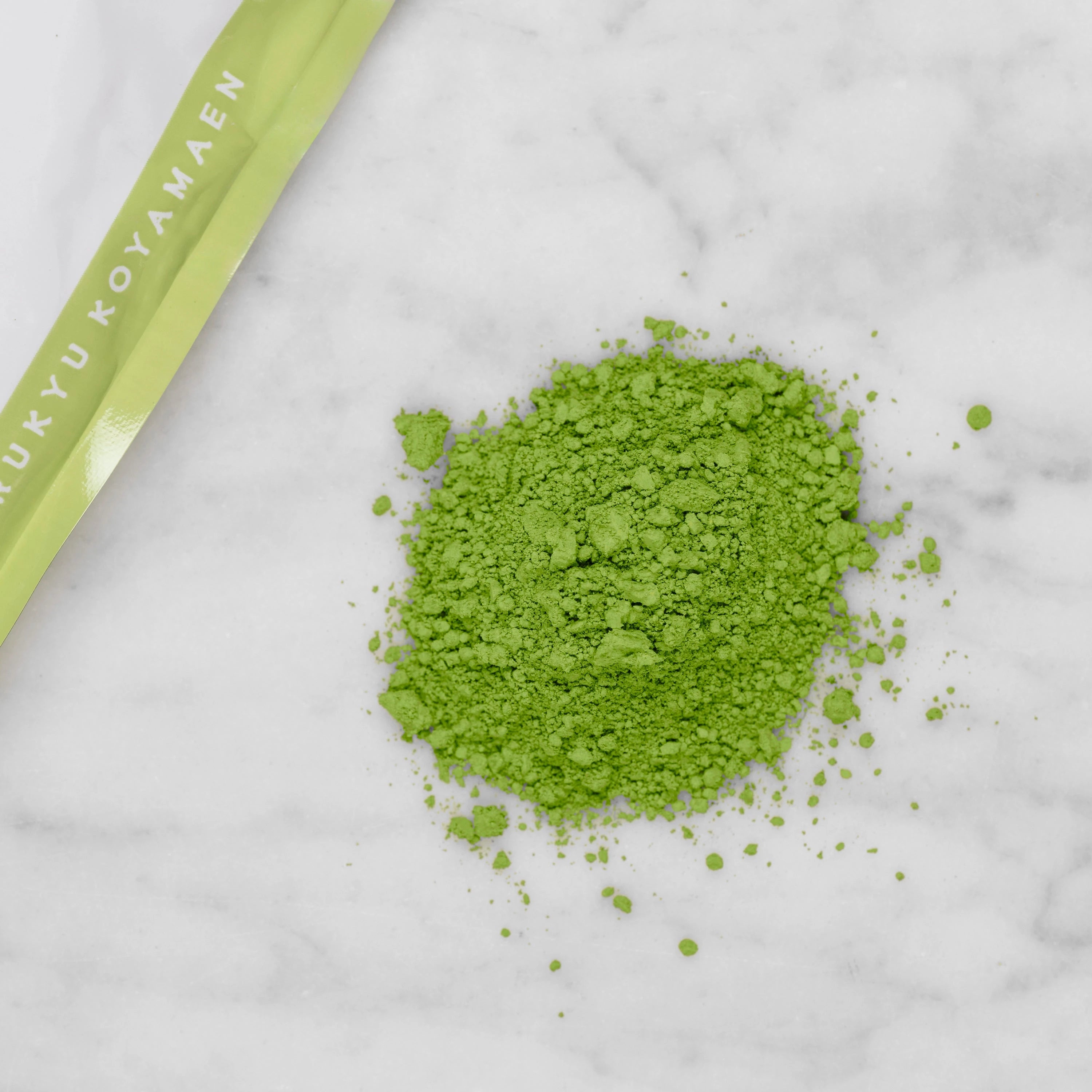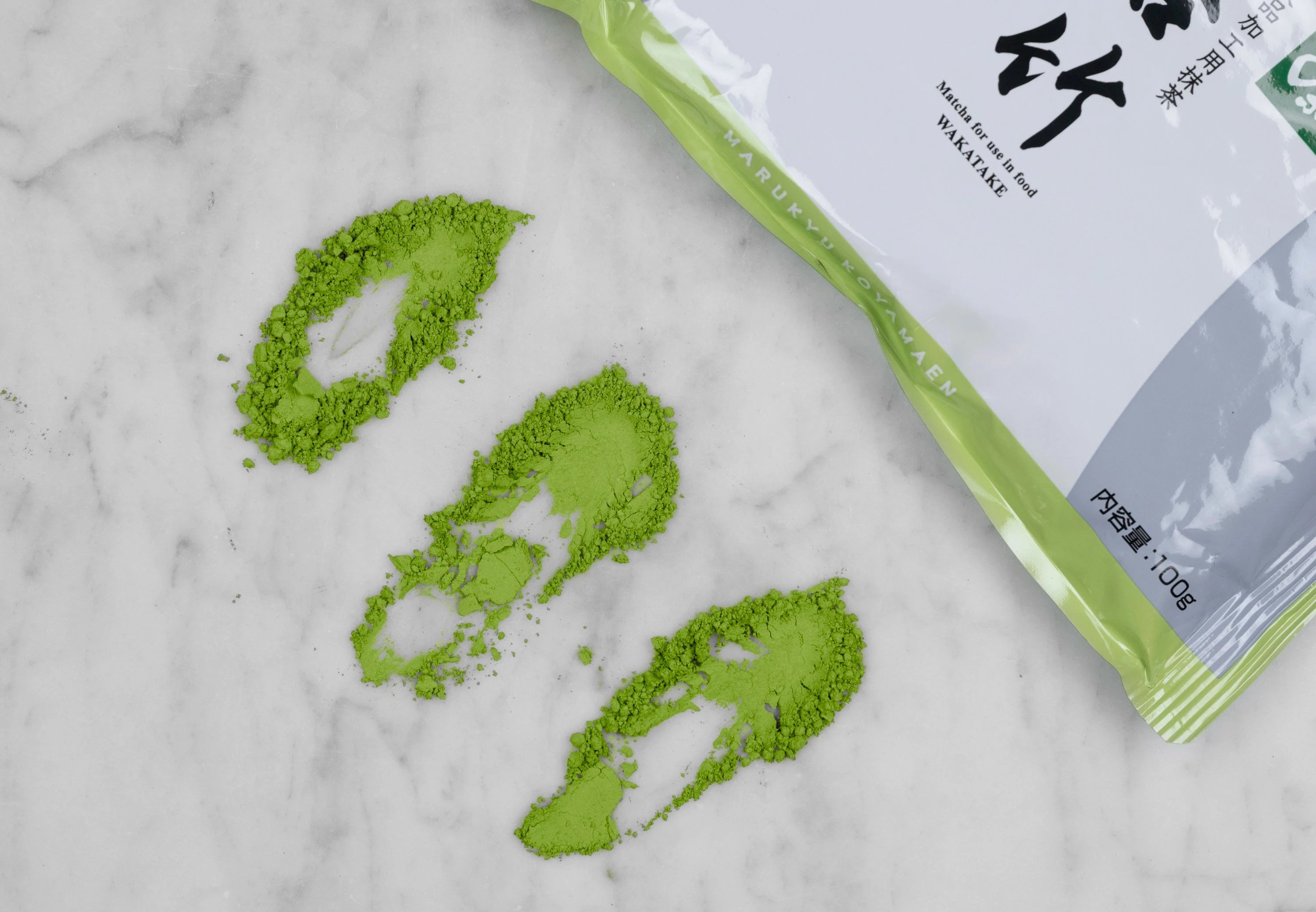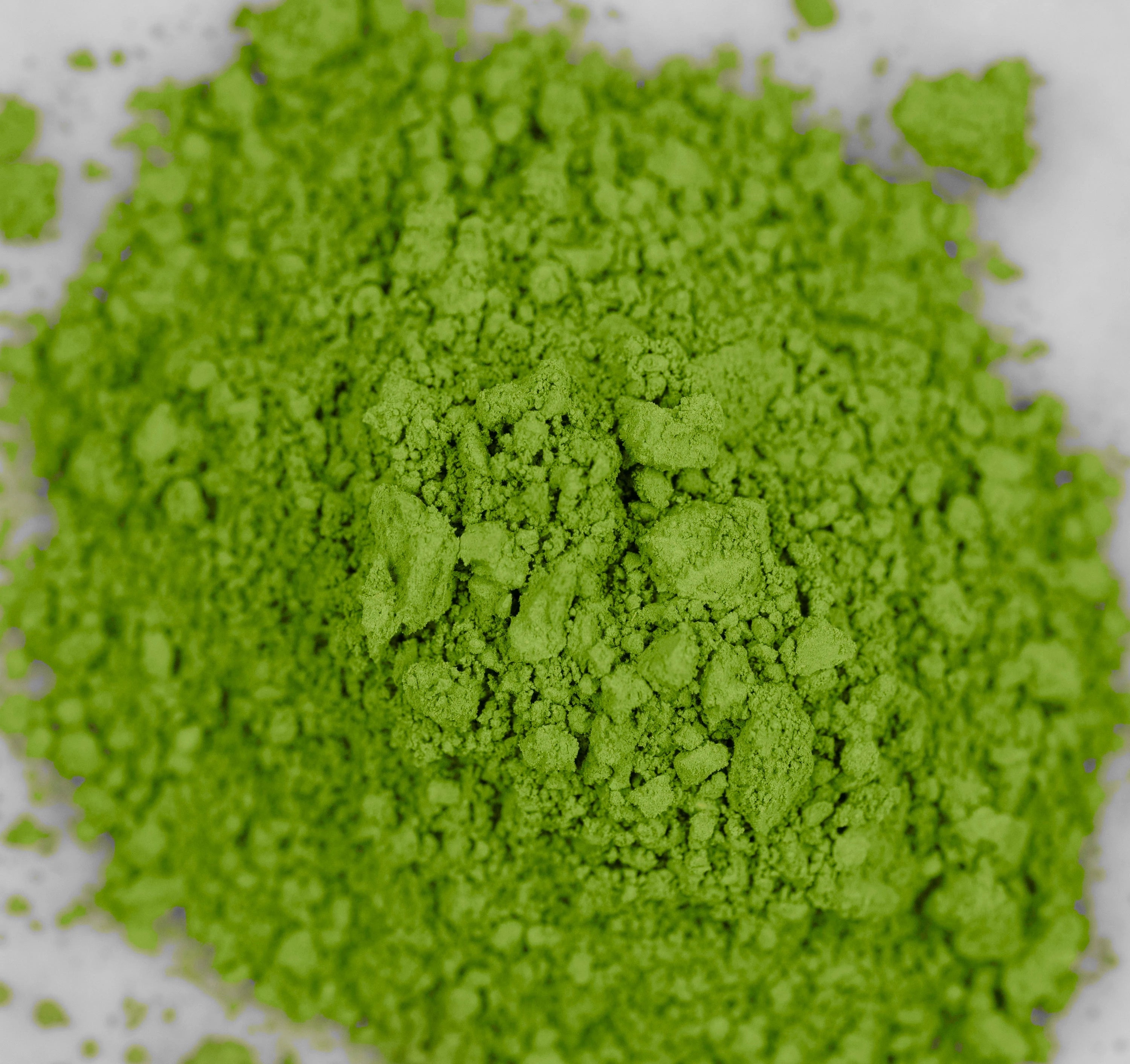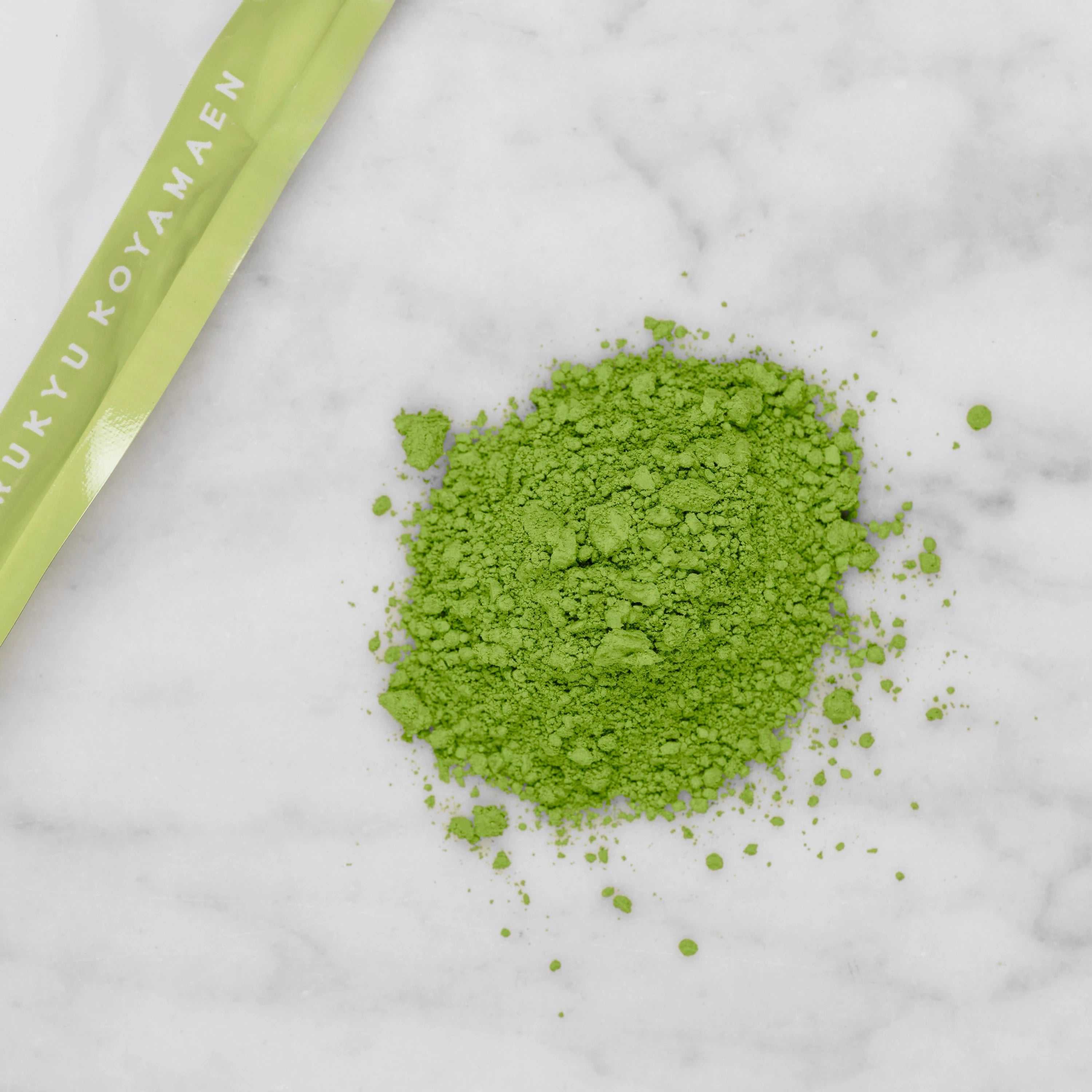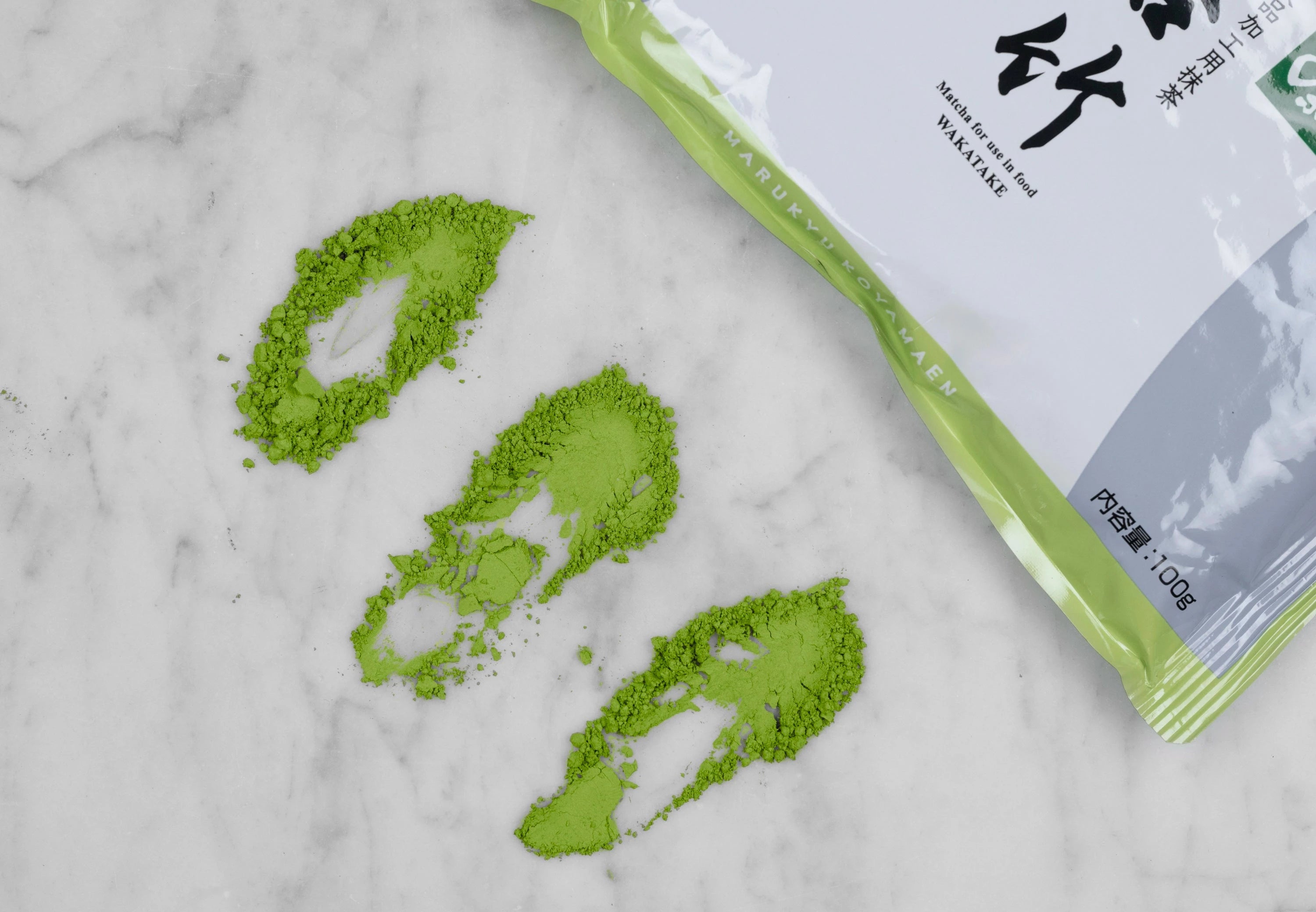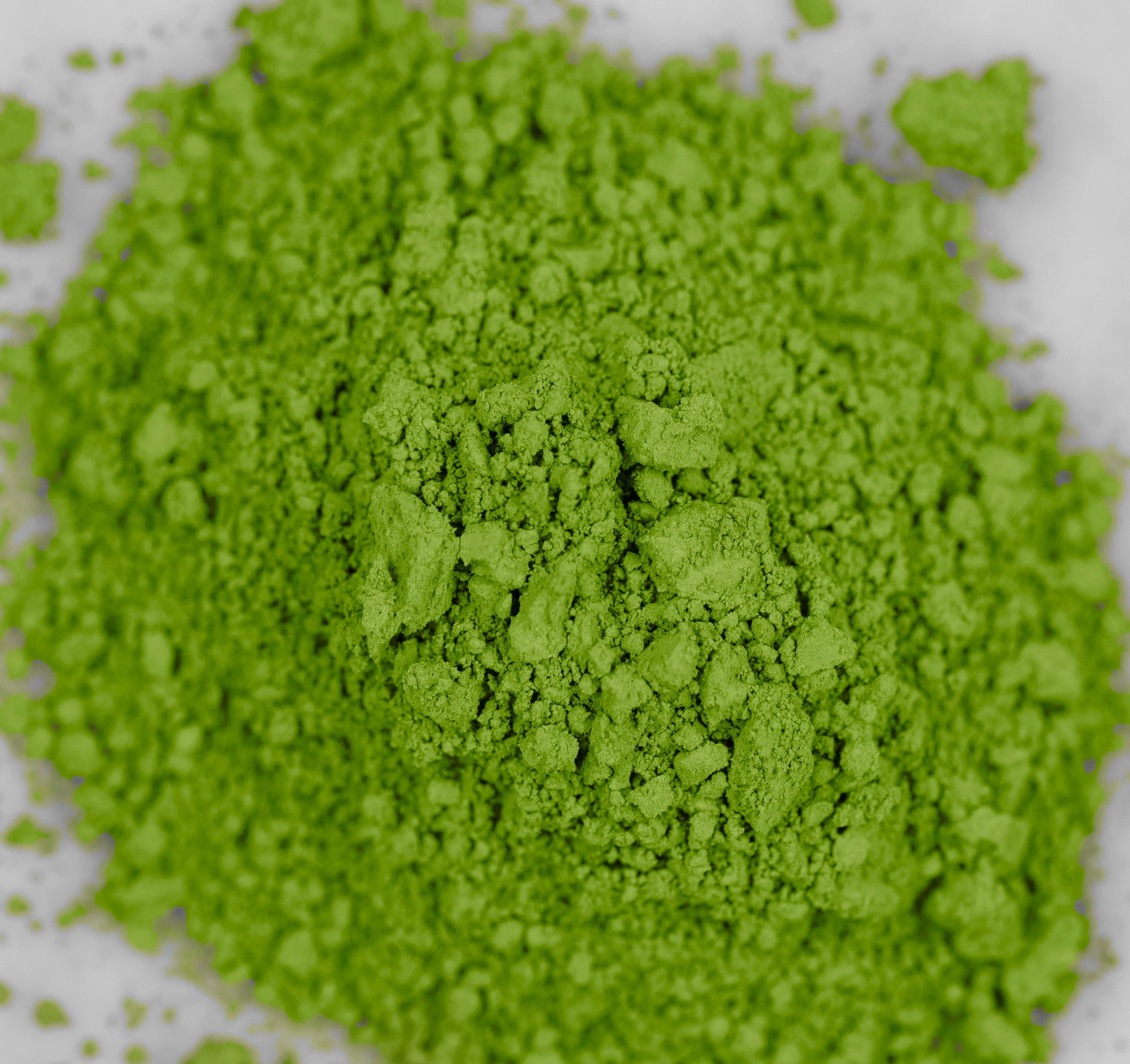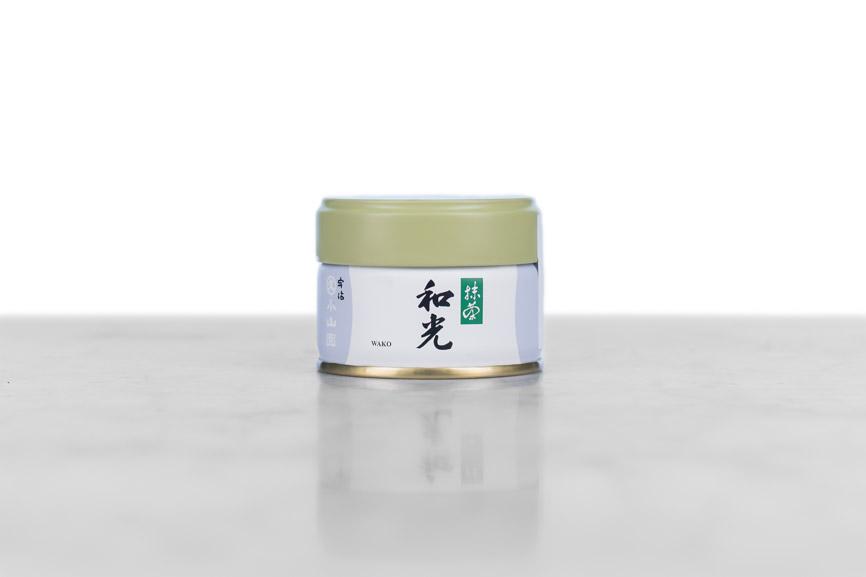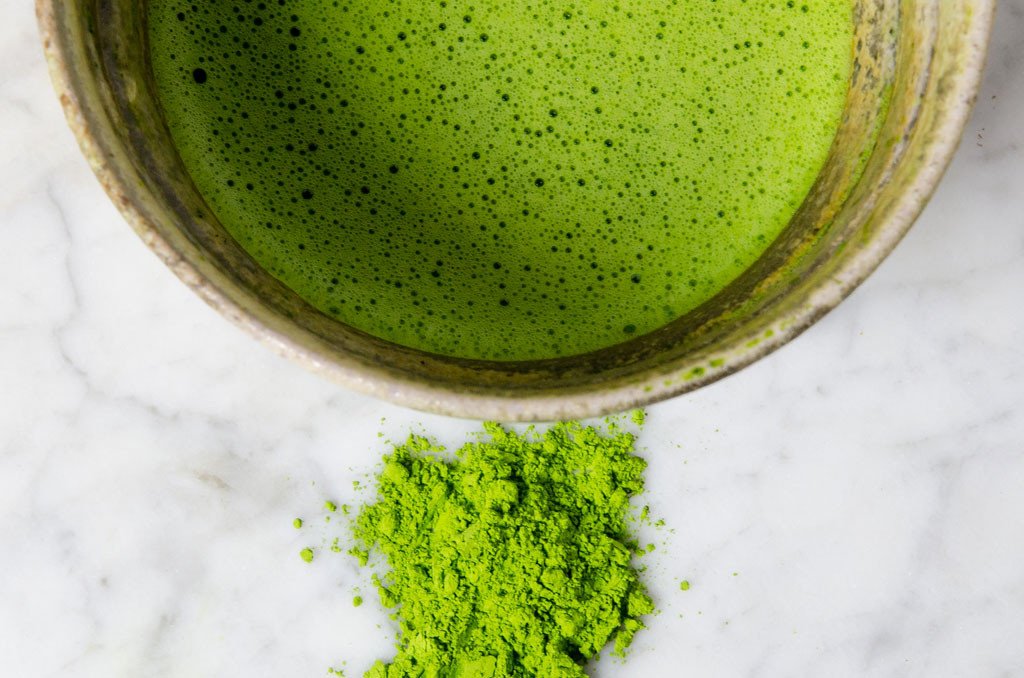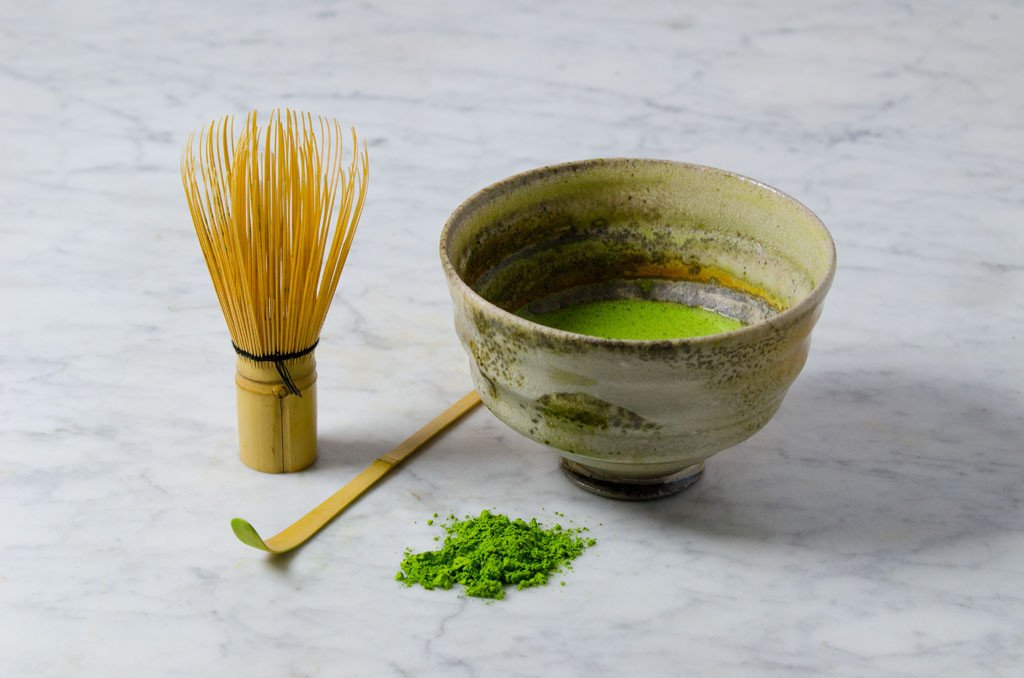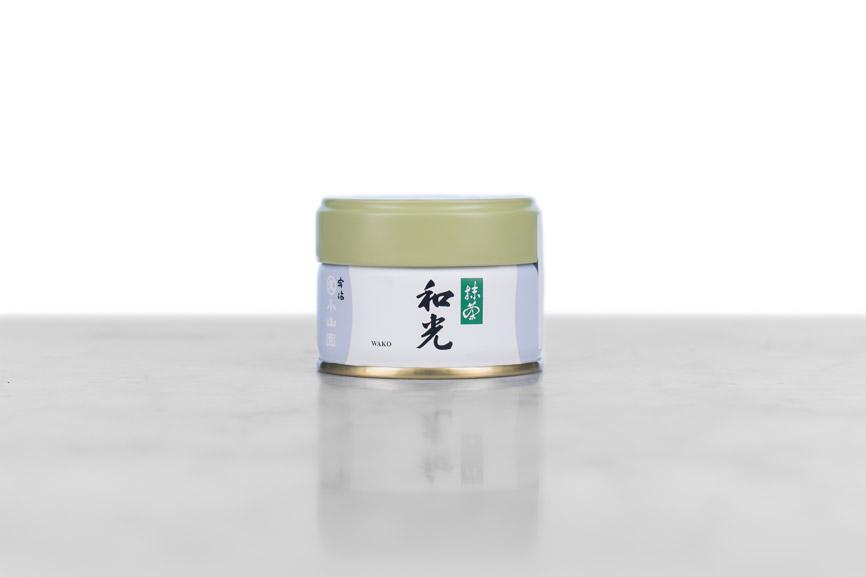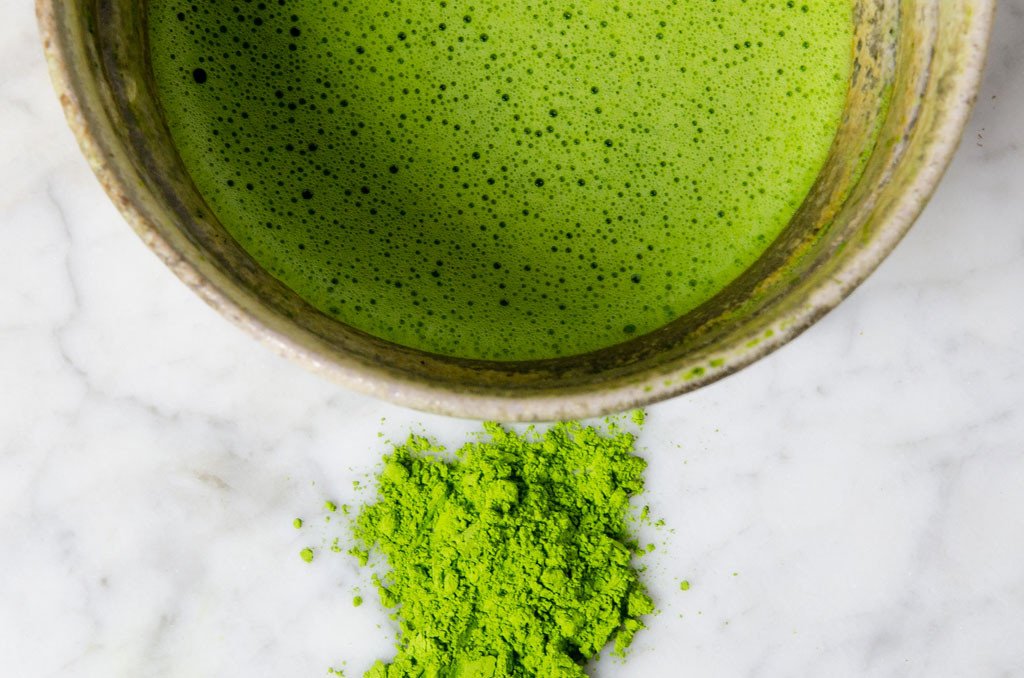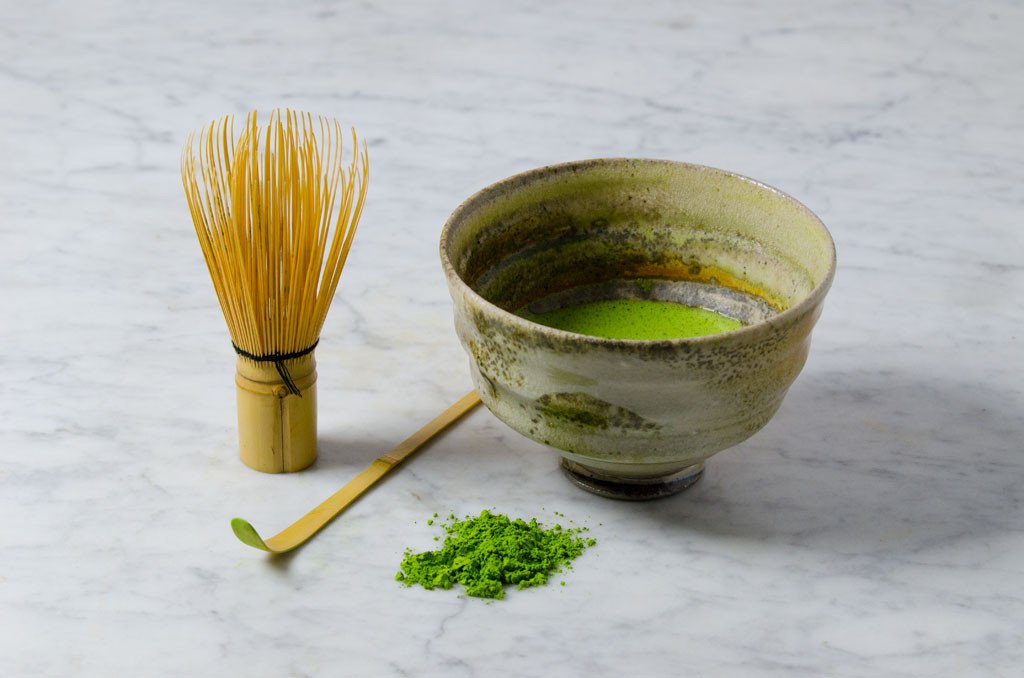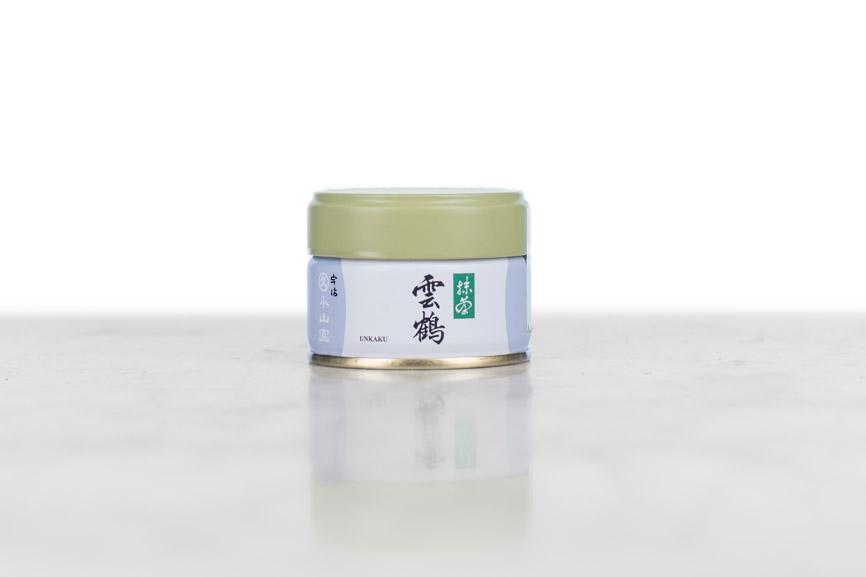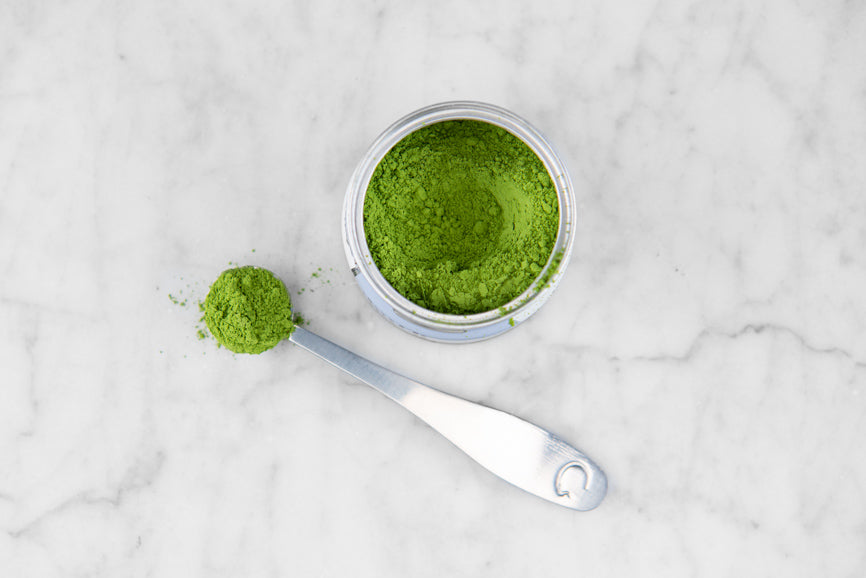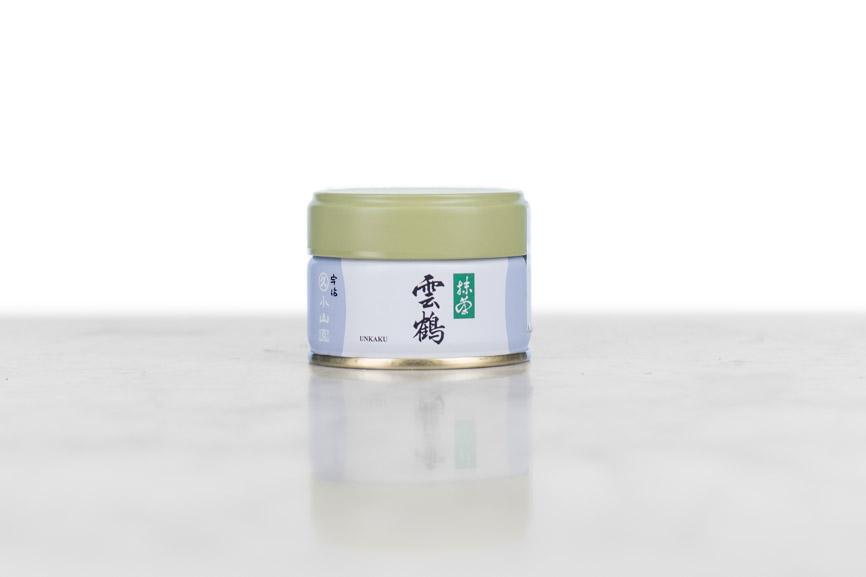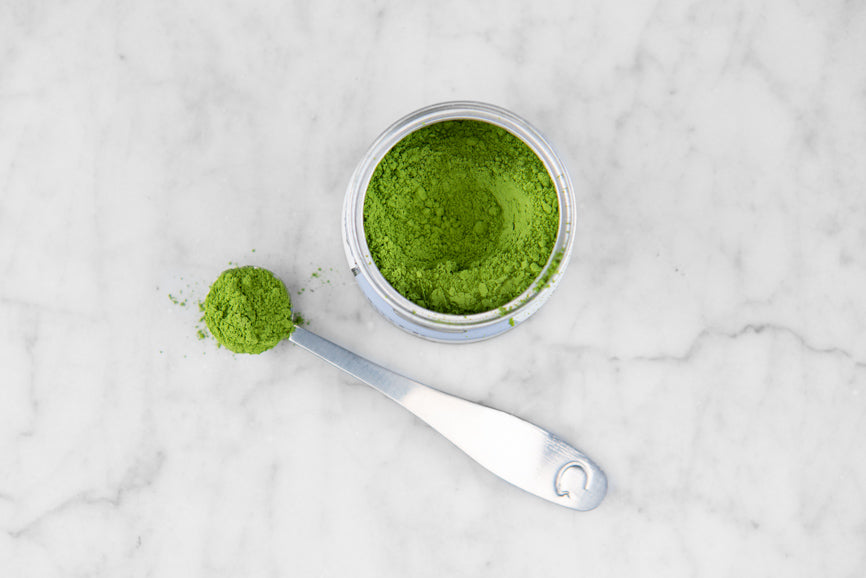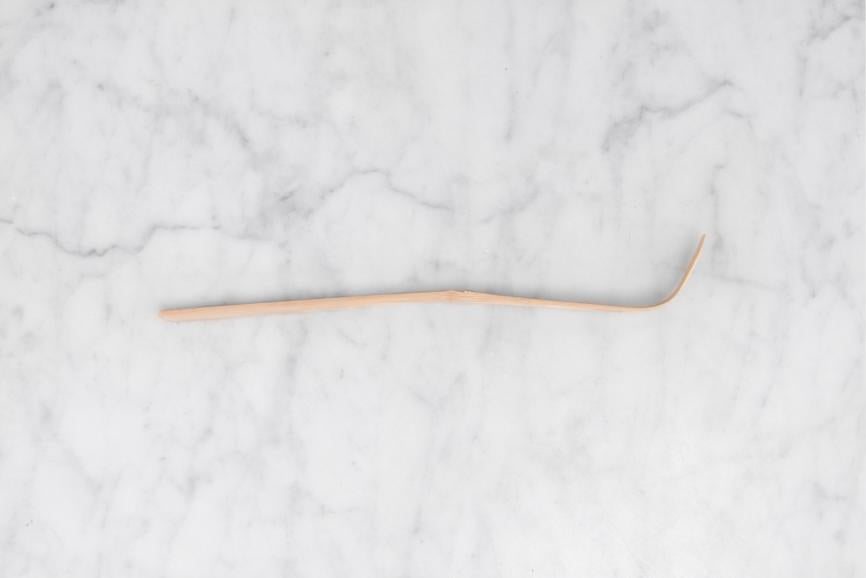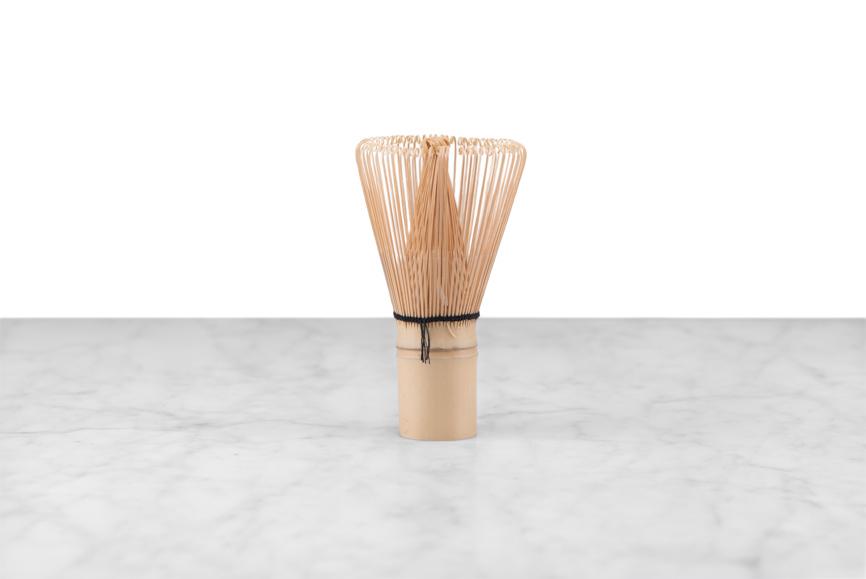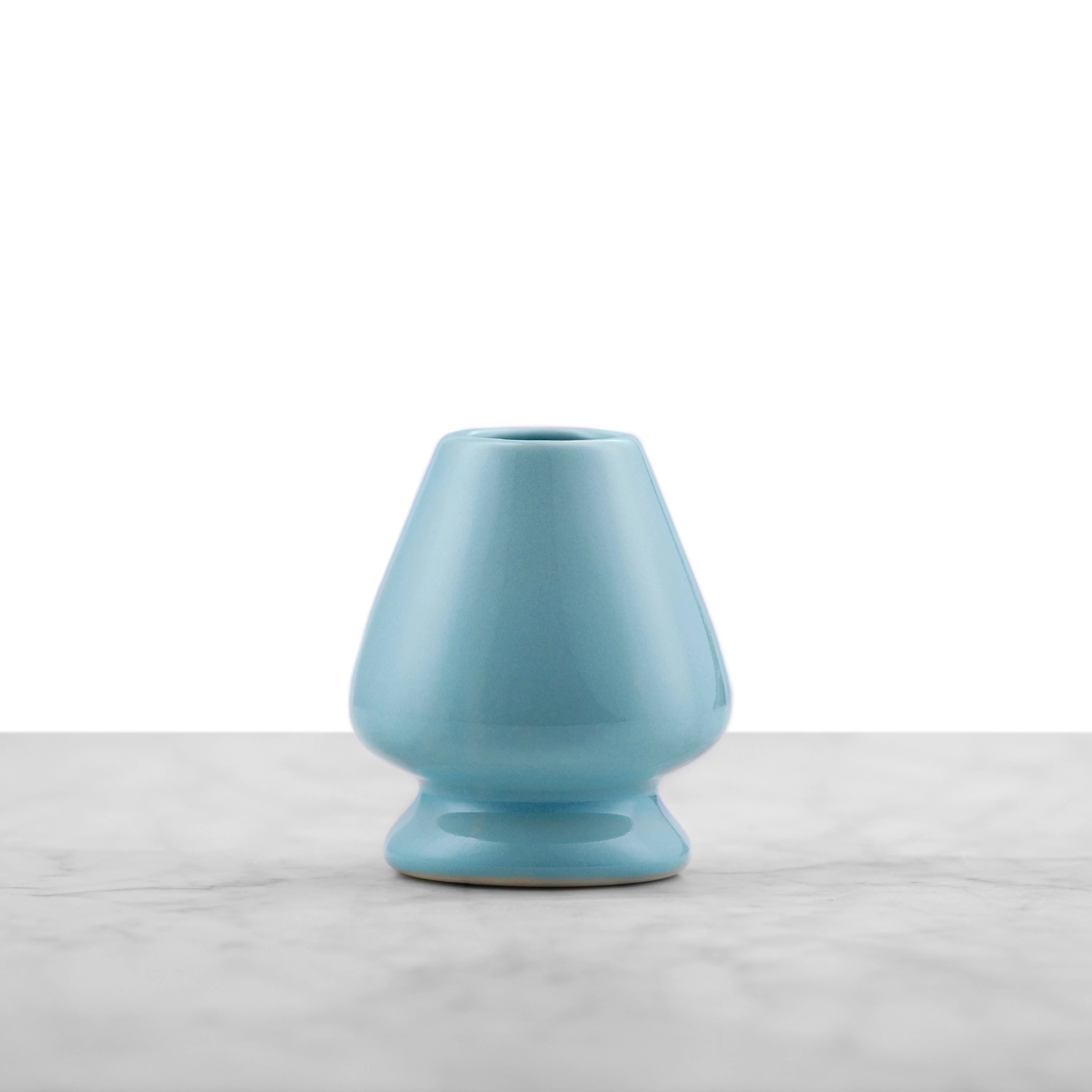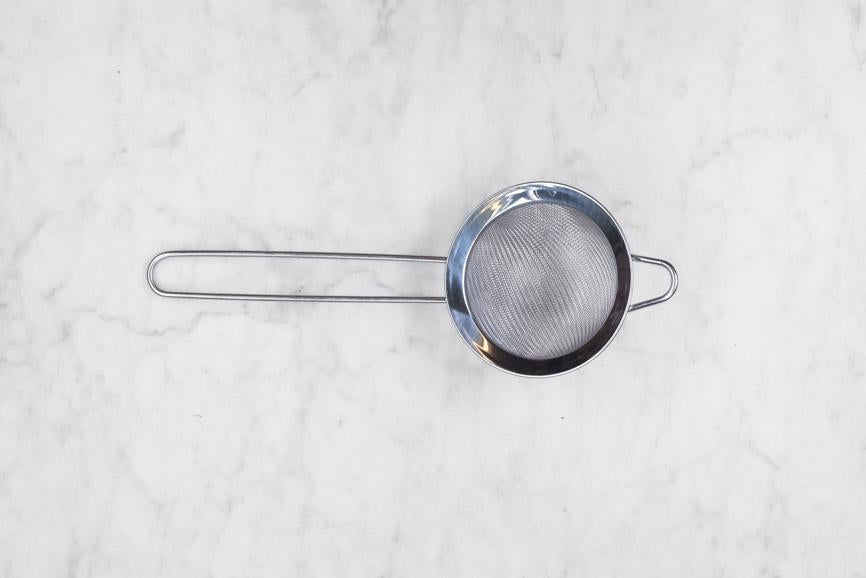Ceremonial vs. Culinary Grade Matcha
Which Matcha is Right for You?
We're demystifying all the buzz-words surrounding culinary-grade and ceremonial matcha to find the matcha that's right for you!
The hype vs the truth
What is Matcha?
Let's start with the simplest definition: Matcha is Japanese green tea ground into a fine powder and (traditionally) whisked into water.
We hear a lot today about how Matcha is better for you than coffee, provides better focus than other forms of caffeine, and is super high in antioxidants, minerals, and healthy amino acids. But is it all just hype?
It's not just hype - it's all true, and there's science and hundreds of years experience to prove it!
Matcha originally made its way to Japan from China thanks to a group of Buddhist monks who discovered matcha to be beneficial for their meditation practice. Now, thanks to modern science, we know this is because of the special interactions of three main components of tea: caffeine, L-theanine, and catechin! Caffeine is a stimulant we're all familiar with, but it acts a bit differently in the body when consumed as part of matcha (and other teas) thanks to the presence of catechin (tannin) and L-theanine. The catechin in tea actually binds to the caffeine molecule, making it more difficult for your body to break down and absorb the caffeine. This results in a more even and longer feeling of caffeination. L-theanine is a powerful, relaxing amino acid that breaks the blood brain barrier within 30 minutes of consumption, leaving you feeling alert yet calm. Combined with the catechin-bound caffeine, you have a recipe for alert and focused attention without all the usual adverse effects of caffeine.
Matcha contains more caffeine, more catechin, and more L-theanine than other types of tea because you consume matcha as a powder suspended in water rather than as an infusion of the leaves, so you are actually ingesting the full potential of the leaf!
Learn more about these three powerhouse components of tea here >>.
To get a bit more technical about the tea itself and how matcha is made, the Japanese name their teas based on each tea's specific preparation, with the name essentially becoming preparation+cha (tea). Matcha is the Japanese word for a specific type of powdered green tea. If you look at the word in kanji and in our English transliteration, 茶 (cha) is the word for tea and 抹 (ma) the word for this specific type of green tea powder made from tencha. Tencha is a de-veined and de-stemmed, shade grown green tea produced specifically to be ground into matcha.
While you will find powdered green teas from other parts of the world, Japan (specifically Uji, Japan) remains the gold-standard production terroir for this type of tea.
We'll take Marketing Terms for $1,000, Alex
Culinary vs. Ceremonial Matcha
As matcha has soared in popularity in the Western world, so too has the marketing language surrounding this gorgeous and sometimes intimidating tea. Among these terms, the words grade, ceremonial, and culinary get tossed around a lot with no regulation and very little to define them other than a perceived link to quality (purity), healthfulness, etc.
Interestingly, however, in Japan these types of distinctions are largely meaningless. Matcha is graded based not on quality but on intended purpose. The highest grades of matcha are reserved for thick preparations (koicha) because the smoothness of the flavors and a more lingering finish are most desirable in this intense, paste-like preparation.
You can think about the Japanese matcha grading system along the lines of the following analogy: You wouldn't use a $200 bottle of Burgundy in boeuf bourguignon - you would use a less expensive bottle that's still delicious to drink (please, never cook with wine - or matcha! - you wouldn't drink!). The same logic applies to how a company like Marukyu Koyamaen (our 8th generation matcha producer) might rank their matcha powders. All of their matcha is beautiful, pure green tea. But consumers don't always want to make thin-grade or thick-grade ceremonial preparations of matcha. Sometimes they want to add honey or sugar, or drink their matcha as a latte, or add matcha to smoothies and baked goods. Therefore, they don't always want to pay for the smoothest matcha blends made from the choicest leaves. In other words, you don't put $200 wine in boeuf bourguignon and you don't put ceremonial matcha in lattes, smoothies, cookies, or cakes! It would simply be a waste of good money and great matcha.
Thanks to news articles and blogs, however, a lot of US consumers tend to equate the word ceremonial with "pure" matcha and regard culinary matcha as inferior. And, if you're in the grocery store this might be true - always be sure to check those ingredients labels for non-tea ingredients in your matcha powder! But when you go to a tea store, you can trust that the matcha powder has already been vetted as pure, high quality powdered tea. This allows you to begin to pay more attention to which grade of matcha is right for your purpose.
With that in mind, we're going to explore our matcha collection and which matchas we recommend for your purpose.
Which Matcha is Right for You?
Choosing the Right Matcha
Iced Matcha, Matcha Lattes & Baking
Matcha Wakatake
Matcha Wakatake 100g Pouch
Usucha (Thin-Grade) Ceremonial Matcha
Matcha Wako
Matcha Wako
Koicha (Thick-Grade) Ceremonial Matcha
Matcha Unkaku
Matcha Unkaku
Everything You Need to Make Matcha
$ 8.00
$ 24.00
$ 11.95


